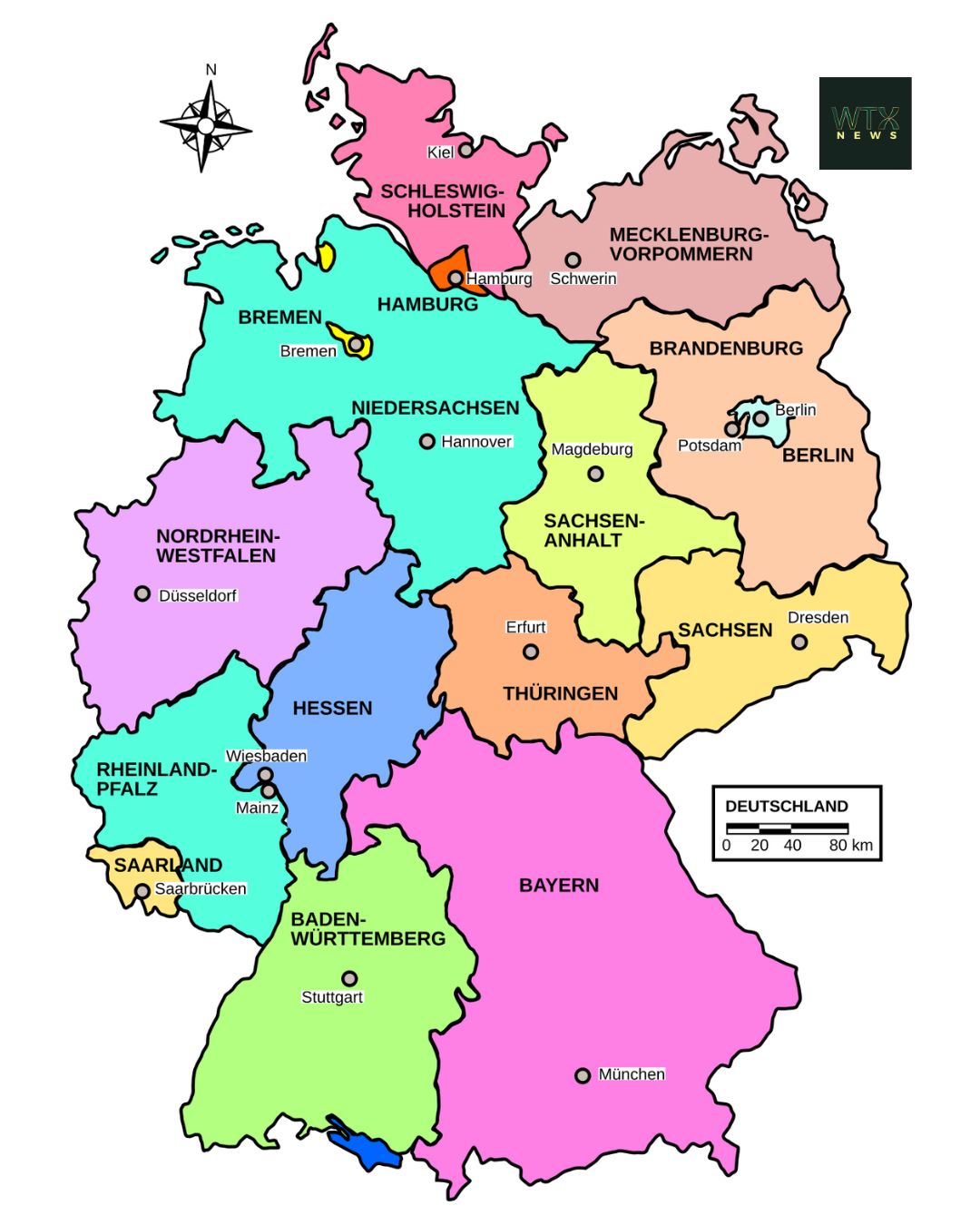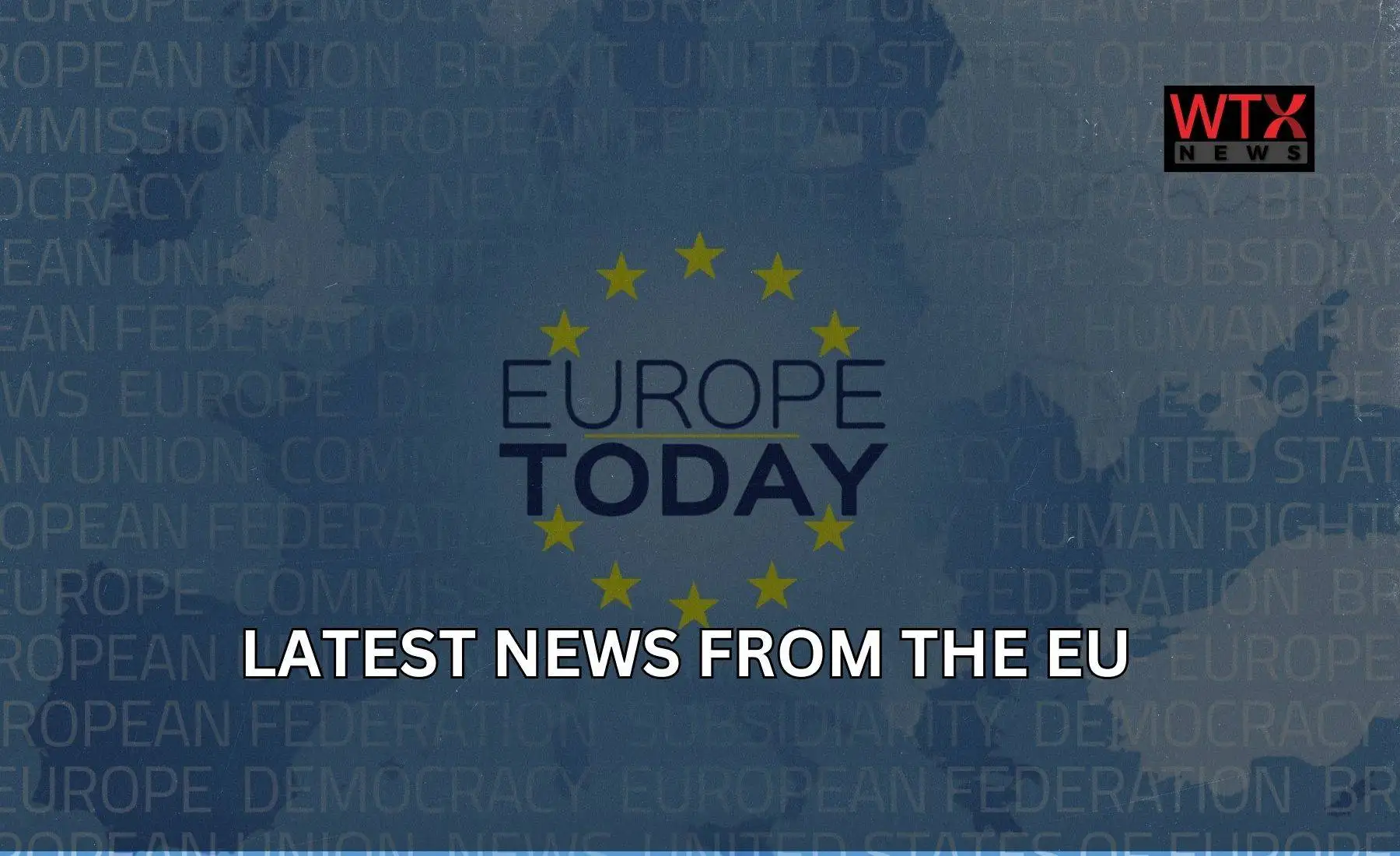- Championship — Monday’s 2nd Mar fixtures
- 3 things you need to know about Israeli-Iran war
- Trump’s Iran Strike is Risky—Uncertain Results Ahead
- European Commission Approves EU Funding for Accessible Abortion Services
- Paul Merson says £67.5m Arsenal star will be the ‘X-factor’ in title race with Man City
- Trump initiates conflict with Iran | Global News
- Spain Criticises US Foreign Policy Amid Israel-Gaza Conflict
- British tourist smashes car through hotel lobby in Karpacz while high on drugs
LIVE German 2025 Election Results as they come in and analysi on who will be the next German Chancellor.
Knowledge Hub
Global Reaction to DE Elections
When are the German Elections?
The Elections are on Sunday the 23rd of Feb 2025
Why are they having a snap election?
The German coalition government failed a no confidence vote
Do Germans vote?
Germans vote in big numbers, usually as high 70+ percent voter turnout
Championship — Monday’s 2nd Mar fixtures
Championship
Matchday 35
Birmingham City 20:00 Middlesbrough
Serie A
Matchday 27
Pisa 17:30 Bologna
Udinese 19:45 Fiorentina
La Liga
Matchday 26
Real Madrid 20:00 Getafe CF
MLS
Regular
Orlando City SC 24 Inter Miami CF
San Diego FC 20 St. Louis CITY SC
3 things you need to know about Israeli-Iran war
Four people have been injured after a missile hit Dubai International Airport while one person has been killed at Abu Dhabi airport.
According to a statement by the Oman’s foreign minster, the world wakes up to a world war, which could have been avoided, If Israel and the United States had stayed at the negotiating table.
The Dubai media office said on Saturday the airport sustained damage due to an ‘incident’, as Iran continued to launch strikes on U.S. bases in the region.
They said: ‘Dubai Airports confirms that a concourse at Dubai International (DXB) sustained minor damage in an incident, which was quickly contained.’
One person has also been killed at Abu Dhabi airport and seven others injured as strikes targeted the rest of the United Arab Emirates.
 The Dubai media office said on Saturday the airport sustained damage due to an ‘incident’
The Dubai media office said on Saturday the airport sustained damage due to an ‘incident’
The country, along with the rest of the Middle East, has been bombarded with missile strikes as Iran retaliates against the US-Israel’s ‘Operation Epic Fury’.
Israel and USA attacked Iran in the middle of negotiations
The two countries launched a barrage of missile attacks in Iran, reportedly killing the Iranian Leader Ayatollah Ali Khamenei.
They also hit two schools which have resulted in over 100 school children.
In response Iran launched a series of attacks at US airbases in the region and at Tel Aviv. There have been confirmed missiles in Saudi Arabia, UAE, Kuwait, Bahrain, and Qatar. Jordan has also seen damage from Iran’s attack on Israel as it intercepted drones and missiles in its airspace.
Iran’s foreign ministry has said the missile strikes have been ordered in self-defence.
The attacks on Dubai have been minimal
A statement from Dubai’s Media Office read: ‘The competent authorities in Dubai announced that a drone was intercepted, and its fragments caused a small fire on the exterior facade of the Burj Al Arab hotel. Civil defence teams were able to control the incident without any injuries.’
Other buildings in Dubai have been struck, including the iconic Palm Jumeirah resort which was hit by falling debris.
 Rubble seen from inside the airport – Watch the video on WTX News Instagram
Rubble seen from inside the airport – Watch the video on WTX News Instagram
Smoke and flames were seen billowing from near the beachside Fairmont The Palm Hotel, after several bangs were heard by holidaymakers across the Emirati city.
Dubai’s international airport is shut
Due to the attacks Dubai’s international airport and Jordan’s airport in Amman have been closed.
Footage of the incident showed the five-star £245 million ($330 million) hotel engulfed in flames as air defence systems intercepted several Iranian missiles.
The Burj Al Arab, hailed as Dubai’s most-iconic hotel, was also in flames after being hit in the drone strike.
The 60-storey five-star hotel, which stands on an artificial island close to Jumeirah Beach, which is the sixth-tallest hotel in the world at 321 metres high, was on fire after it was hit by fragments from an Iranian drone which had been intercepted.
Iranian Supreme Leader Ayatollah Ali Khamenei has been killed
 Iranian Leader Ayatollah Ali Khamenei has been killed (Picture: EPA)
Iranian Leader Ayatollah Ali Khamenei has been killed (Picture: EPA)
Iranian State TV have confirmed the death of Iranian Leader Ayatollah Ali Khamenei.
Donald Trump had earlier claimed Khamenei has been killed in an airstrike as Israel and the US and Israel have launched a war on Iran, his secure compound being heavily damaged in the initial attacks.
In the wake of Israel’s bombing of school the UK PM said Iran must ‘refrain from indiscriminate military strikes’
Prime Minister Keir Starmer has said in a joint statement with the leaders of France and Germany that Iran must ‘refrain from indiscriminate military strikes’.
UK flights to the Middle East have been cancelled, while airports in Dubai and Doha have halted all services until further notice.
On Saturday, the UK Foreign Office warned Brits in Dubai that they should ‘immediately shelter in place’.
Add WTX News as a Preferred Source on Google
Trump’s Iran Strike is Risky—Uncertain Results Ahead
Get you up to speed: Trump’s Iran Strike is Risky—Uncertain Results Ahead
MILITARY STRATEGY GAMBLE
President Trump has initiated major combat operations aimed at regime change in Iran, asserting that overwhelming US military power will deter threats to the United States.
POLITICAL REACTION
Senator Chuck Schumer warned that Trump’s military actions in Iran could lead to unintended consequences, emphasizing the need for measured diplomacy alongside military efforts.
CURRENT STATUS
Donald Trump has initiated major combat operations against the Iranian regime, while Iranian forces are actively retaliating with missile attacks on Israel.
What we know so far
Donald Trump’s decision to launch “major combat operations” in Iran is the biggest gamble by any American president since George Bush invaded Iraq more than two decades ago.
The US commander in chief – who came to power as an arch opponent of the US’s so-called “forever wars” – has set out ambitious and extensive goals for his attack against the Islamic Republic, saying he plans to prevent this “wicked, radical dictatorship” from threatening the United States.
But he is not in complete control of events.

Mr Trump is gambling that overwhelming US military firepower from the air – rather than boots on the ground – will be enough to destroy the Iranian regime. Tehran’s military may have been degraded by previous US and Israeli strikes, but they are showing no sign of rolling over.
The scale of that retaliation and how much the US and Israel can withstand the counterattacks will be a fundamental indicator to track.



Mr Trump has prepared his country for the potential for American service men and women to be killed, saying in his video address “we may have casualties. That happens in war”.
He has calculated that any pain the US side suffers is worthwhile to end the threat posed by Iran.
And he spelt out these objectives – a move that could come back to haunt him if they are not achieved.
Chief among these war goals is a vow to prevent Iran from ever having nuclear weapons. But the US president has also pledged to destroy Iran’s missile capabilities and to “annihilate” its navy.

He issued an ultimatum to all members of the Iranian armed forces and security services from the Republican Guard to the police, telling them to lay down their weapons “or face certain death”.
There is no indication that the Iranian security forces are about to betray the regime.
The fact that Iran is now retaliating by launching missiles against Israel is a clear sign that Tehran has not been cowed by Mr Trump’s opening salvo and is ready to fight.
Even if the regime is toppled, the next moment of peril is what comes next.
The US president made clear that he wants the Iranian people to step up and “take over your government”.
But, again, he does not have the ability to control what that would look like and whether what comes next is better than what he seeks to destroy.
The history of wars in the Middle East shows that no plan by either side survives first contact with the enemy.
European Commission Approves EU Funding for Accessible Abortion Services
Get you up to speed: European Commission Approves EU Funding for Accessible Abortion Services
EUROPEAN COMMISSION TALKS
The European Commission’s decision enables member states to use the European Social Fund Plus for accessible abortion services, marking a significant development in women’s rights across Europe.
EU RESPONSE
European Commission spokesperson stated that member states can now utilise the European Social Fund Plus for accessible abortion services, clarifying EU’s supportive role in healthcare initiatives.
CURRENT STATUS
Member states may now utilise the European Social Fund Plus for providing accessible abortion services, requiring the establishment of programmes defining patient benefits.
What we know so far
Women’s rights groups and activists hailed the European Commission’s decision on accessible abortion across Europe, calling it a “historic” move for women’s rights and European democracy.
The move marks an unusual step taken by the European Union, as healthcare policy is typically determined at a national level.
On Thursday, the European Commission confirmed member states can use an EU social fund to provide access to safe and legal abortion for women who are barred from doing so in their home country.
Member states can make use of the bloc’s existing European Social Fund Plus (ESF+), which contributes to social, education, employment and healthcare policies, voluntarily and in accordance with their domestic laws to provide such support.
“We were very aware of the competence that the European Union has in this area, which is restricted,” Europe’s Associate Director for the Center for Reproductive Rights Katrine Thomasen told EU News, pointing to the fact that the bloc can support, coordinate or supplement the actions of member states, but cannot impede on national laws, such as healthcare policies.
The Commission stopped short of creating a new funding mechanism, which was requested by the European Parliament in a non-binding resolution adopted in December.
Critics argued that by declining to establish a dedicated fund and instead referring to an existing one, the EU was effectively failing to act and rejecting the proposal.
However, women’s rights organisations say the decision affirms that the EU has the competence to act on sexual and reproductive health and creates a pathway towards accessible abortion.
“It was previously not clear that member states could use EU funding to provide abortion care to women facing barriers,” Thomasen said, “the Commission’s decision is really the first time that it is affirming and deciding that EU funds can be used in this way”.
Member states that wish to benefit from the ESF+ to offer accessible abortion services will now need to establish programmes and define how patients can benefit from it.
‘My Voice, My Choice’
The Commission’s decision came in response to a call made by the citizens’ initiative “My Voice, My Choice” for the creation of an EU solidarity mechanism to guarantee safe and affordable access to abortion for all women.
“My Voice, My Choice” is a European Citizens’ Initiative (ECI), a mechanism that allows citizens to call on the European Commission to propose new legislation.
If an initiative gets the support of at least one million people across at least seven EU countries, it must be discussed by the European Parliament, while the European Commission has a timeframe to either set out legislative measures or provide justification for not doing so.
“My Voice, My Choice” collected 1,124,513 signatures across all 27 countries.
“My Voice, My Choice started on the streets, it started with a group of women who had had enough that women are secondary citizens,” the initiative’s coordinator Nika Kovač told EU News.
“We decided to take action and we brought something to the table. We brought our own chair to the places where we usually don’t have the chairs,” Kovač added.
The movement gained cross-border momentum, with women’s rights activists mobilising across Europe. With over one million followers on Instagram, “My Voice, My Choice” also built a strong online presence.
Dutch journalist Belle de Jong campaigned for the initiative in Malta, where abortion remains criminalised and heavily restricted. She described the challenges of organising on the ground, noting that many women were reluctant to take to the streets because of stigma and fear of legal consequences.
De Jong told EU News that the campaign’s success in Malta was largely because it was online, “so people didn’t have to go out into the streets or show their face,” she said, adding that she collected more than 4,000 signatures for Malta, more than double she expected.
“Thanks to My Voice, My Choice, we no longer have an excuse to prosecute women for accessing healthcare, because we’re paying for them to go abroad with this EU mechanism. So it really begs the question: when are we going to decriminalise it? That will be our next fight in Malta,” she added.
The decision sparked a range of reactions from politicians
Several Members of the European Parliament have expressed satisfaction after the Commission’s statements.
“For the first time the Commission has confirmed that countries can use EU funds to support access to abortion care. This is a victory for European women,” said Slovenian Socialist MEP Matjaž Nemec, who penned a letter to the Commission ahead of the decision.
Valérie Hayer, President of Renew Europe, said the decision “marked real progress for women’s rights,” underlining that the Commission had never before stated so clearly that EU funding can support access to safe abortion.
Other MEPs, including Emma Fourreau from the Left group and French MEP Mélissa Camara from the Greens/EFA group considered the move a step forward, but would have liked to see a dedicated budget.
On the other side, far-right Spanish party Vox claimed that the Commission has rejected the “My Voice, My Choice” initiative, as there will be no specific fund to finance abortions abroad. “The Commission is just trying to politically save the initiative by pointing out existing instruments,” a press release from the party states.
The Italian anti-abortion association “Pro Vita & Famiglia” (Pro Life and Family) also considered that the initiative was rejected, while criticising its opening up to the use of ESF+ money to finance reproductive healthcare. “We ask the Italian government not to use this money to promote abortions,” said spokesperson Maria Rachele Ruiu.
Abortion policies across the European Union
Some EU countries have highly restrictive laws on abortion rights. A total ban is in force in Malta, where abortion is not allowed under any circumstances, while in Poland it is permitted only when conception follows sexual violence or when there is a risk to the woman’s health.
In January 2021, the Polish Constitutional Tribunal banned abortions in cases of fetal malformation, which until then had been the most frequent reason for terminating pregnancies in the country.
Several EU countries have taken steps to guarantee the right to safe abortions. France, for instance, made it a constitutional right, while Luxembourg and the Netherlands have removed mandatory waiting periods.
Sweden, France, and the Netherlands rank best in the European Union for abortion rights, according to the European Abortion Policies Atlas 2025. Malta and Poland remain at the bottom of the ranking, along with Andorra, Liechtenstein, and Monaco.
Some countries have more relaxed laws, but they lack legal protections that fully decriminalise abortion, wide service availability, national health coverage, or government-led information on the matter.
Other member states have recorded new restrictions, increased harassment of abortion providers, and the spread of disinformation on the topic.
Paul Merson says £67.5m Arsenal star will be the ‘X-factor’ in title race with Man City
Paul Merson says £67.5m Arsenal star will be the ‘X-factor’ in title race with Man City | Football
TL;DR – Two-minute read
Arsenal faced Chelsea in a crucial Premier League match after a dominant 4-1 victory over Tottenham, with Eberechi Eze and Viktor Gyokeres both scoring twice. Mikel Arteta’s side aimed to maintain their title lead against Manchester City, who closed the gap to two points with a recent 1-0 win over Leeds United. The match occurred on Sunday.
Paul Merson is confident that Eberechi Eze can be the ‘X-factor’ for Arsenal as they aim to fend off Manchester City in the Premier League title race. This statement was made ahead of Arsenal’s crucial match against Chelsea, scheduled for Sunday, where they will attempt to maintain their lead at the top of the table.
The title race has been competitive, particularly after Manchester City’s recent 1-0 victory over Leeds United on Saturday evening, which brought them within two points of Arsenal. The Gunners, who are currently two points clear, will be tested against fifth-place Chelsea, who are striving to secure a Champions League spot for next season.
Merson shared his insights during a segment on Sky Sports, advising Arsenal to attack Chelsea. He remarked, “For me, I think they’ve got to take the game to Chelsea. Chelsea will probably sit back like they did in the semi-final and soak it up and try and get Arsenal on the counter-attack.” He highlighted the significance of this match, saying, “I think if Arsenal win this game, you could tick another big team off that they’ve beaten.”
Arsenal are entering this encounter with confidence following a commanding 4-1 win over Tottenham last weekend. Merson emphasised that Eze, in particular, is poised to play a pivotal role for the Gunners in their final ten matches of the season, stating, “If these two hit fire until the end of the season, Arsenal win the league if they can go and be 8 out of 10 every week.”
However, Merson also expressed uncertainty regarding Eze’s standing in Mikel Arteta’s plans, suggesting that “No, I don’t think he does trust a lot of people” in the context of player selections. He pointed to previous examples of players who have struggled to maintain their places in the team following subpar performances.
Arsenal’s upcoming fixture against Chelsea is crucial as they seek to solidify their position in the title race with only ten games remaining.
Trump initiates conflict with Iran | Global News
Get you up to speed: Trump initiates conflict with Iran | Global News
MIDDLE EAST CONFLICT
US military targets in Iran are struck as Israeli forces pursue Iranian leaders, prompting retaliatory attacks on US bases across the Middle East.
WAR ESCALATION
Iran’s response to US military targets included strikes on bases in Bahrain and Qatar, according to the Pentagon, raising concerns about broader regional stability.
CURRENT STATUS
Chair of the Board of Peace has begun hostilities, as US and Israeli forces retaliate against Iranian military targets, escalating tensions in the region.
What we know so far – The chair of the Board of Peace starts war
The US strike military targets on Iranian soil, while Israelis, supporting the attack on the regime, go after Iran’s leaders.
The Iranians have already struck back – hitting US military bases across the Middle East – in Bahrain, Qatar, Abu Dhabi and Dubai.
What next? And is this the start of the most consequential conflict in the Middle East in a generation?
Iran launches 100s of missiles at Tel Aviv
— WTX News UK (@WtxNews) February 28, 2026
Some made it through the iron dome defence system pic.twitter.com/HNL0iIZfL2
Local insights
Related Election News
LIVE German 2025 Election
Subscribe to Updates
Get the latest creative news from FooBar about art, design and business.










